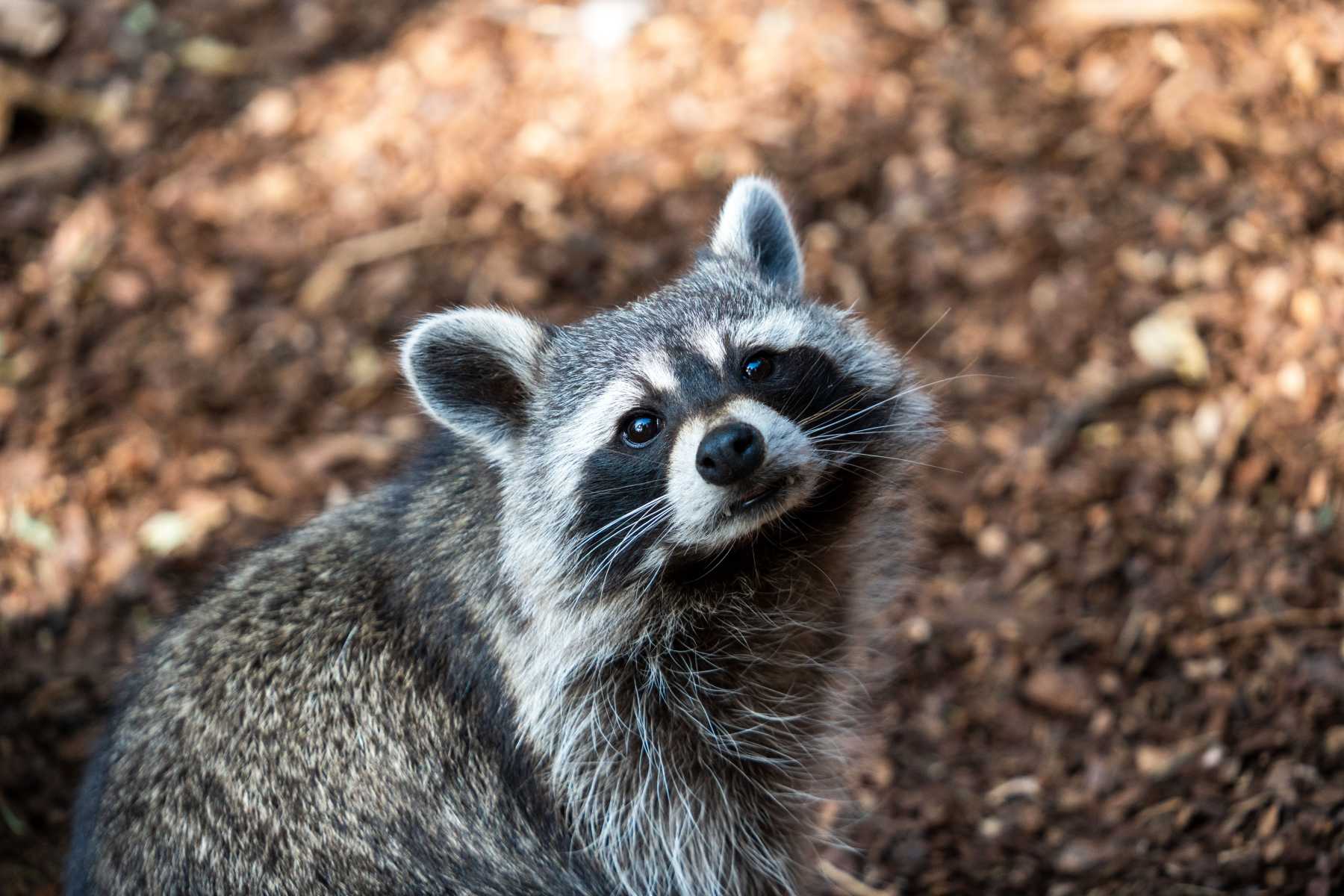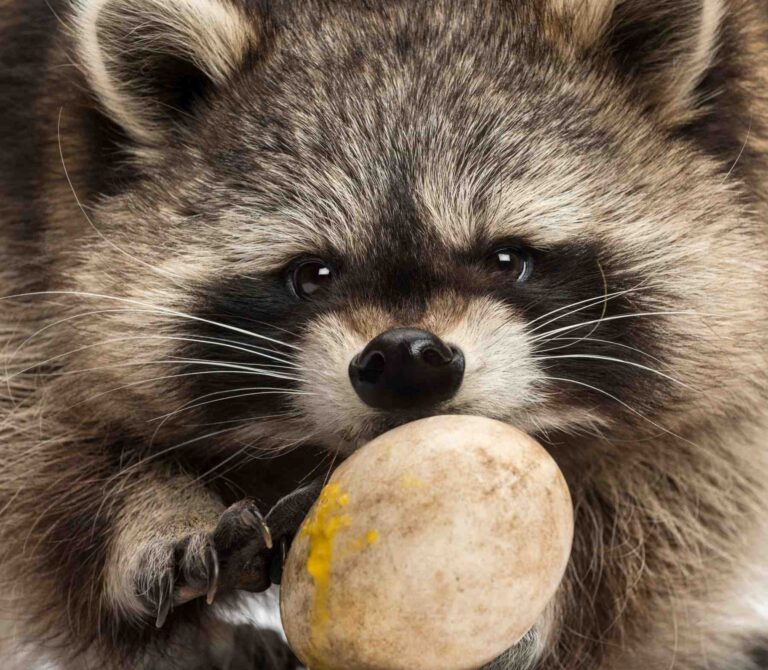Exploring the Perils Faced by Raccoons: A Comprehensive Examination of Threats and Mortality Factors
Raccoons, those charming bandit-masked creatures, navigate our world with curiosity and adaptability. However, their survival is challenged by an array of natural and human-induced threats. This article delves into the diverse factors contributing to raccoon mortality, ranging from predators and diseases to urbanization and pollution. Understanding these perils is crucial for fostering coexistence and implementing effective conservation strategies.
Natural Predators
Raccoons may be savvy scavengers, but the wild holds its share of challenges. Coyotes, bobcats, and birds of prey lurk in the shadows, ready to pounce. These natural predators are crucial in maintaining ecological balance by controlling raccoon populations. While predation is a part of nature’s intricate tapestry, its impact on raccoon populations remains a subject of scientific scrutiny.
| Predator | Impact on Raccoon Populations |
| Coyotes | Control population dynamics by preying on raccoons, influencing their behavior and distribution. |
| Bobcats | Exhibit selective predation, targeting vulnerable raccoon individuals, particularly the young and weak. |
| Birds of Prey | Contribute to population control, with their aerial advantage making raccoons susceptible targets. |
Understanding the interplay between raccoons and their natural predators provides valuable insights into the intricate dance of survival in the wild.
Disease
In unseen threats, diseases cast a long shadow over raccoon populations. Distemper and rabies stand out as significant contributors to raccoon mortality. These diseases impact individual raccoons and pose risks to other wildlife and domestic animals.
| Disease | Symptoms and Impact on Raccoons |
| Distemper | Neurological symptoms, including seizures and disorientation, lead to eventual death. |
| Rabies | Causes aggressive behavior, paralysis, and, ultimately, death. Poses a threat to humans and other animals through bites or scratches. |
The transmission of these diseases within raccoon communities highlights the need for vigilant monitoring and management strategies to mitigate their impact.
Human Encounters
While raccoons navigate the urban jungle with surprising finesse, human-related threats are unavoidable. Road accidents and vehicle collisions emerge as leading causes of raccoon fatalities as expanding human settlements encroach upon their habitats. The clash between our world and theirs has tragic consequences for these adaptable creatures.
| Human-Related Threats | Impact on Raccoon Populations |
| Road Accidents | High mortality rates due to collisions with vehicles, particularly during nocturnal activities. |
| Habitat Destruction | Loss of natural habitats contributes to increased stress, decreased food availability, and higher mortality rates. |
Urbanization and human expansion paint a challenging landscape for raccoons, emphasizing the importance of responsible development practices.
Trapping and Hunting
Controversial yet prevalent, trapping and hunting serve as methods to control raccoon populations. While regulations exist to manage these practices, debates surround their ethical implications and effectiveness in population control.
| Methods of Control | Controversies and Impact on Raccoon Populations |
| Trapping | It can be inhumane and lead to unintended captures of non-target species, impacting biodiversity. |
| Hunting | It raises ethical concerns but may be necessary for population management in certain regions. |
Balancing the need for population control with ethical considerations remains a key challenge in implementing effective strategies.
Poisoning
The use of toxic substances and pesticides to control raccoon populations introduces a new set of risks. While intended to manage raccoon numbers, poisoning methods often have unintended consequences, affecting not only raccoons but also the broader ecosystem.
| Poisoning Methods | Ecological Consequences and Unintended Targets |
| Toxic Substances | Contamination of food sources impacts raccoons and other wildlife and potentially enters the food chain. |
| Pesticides | Broad-spectrum impact on insects and other invertebrates, disrupting the ecosystem’s delicate balance. |
The collateral damage inflicted by poisoning methods underscores the need for sustainable alternatives in population management.
Starvation
As urbanization encroaches on their territories, raccoons face increasing challenges in finding sufficient food. Habitat loss and scarcity contribute to malnutrition and starvation, impacting their health and overall survival.
| Factors Contributing to Starvation | Effects on Raccoon Health and Survival |
| Habitat Loss | Diminished foraging opportunities lead to decreased body condition and weakened immune systems. |
| Food Scarcity | Increased competition for limited resources exacerbates malnutrition and starvation, particularly in urban environments. |
Mitigating the effects of starvation requires a multifaceted approach, addressing habitat preservation and responsible waste management.
Pollution
Pollution, a modern scourge, extends its reach to raccoon habitats. Water sources tainted by pollutants and habitats marred by human-made chemicals contribute to raccoon mortality, highlighting the interconnectedness of ecological health.
| Types of Pollution | Adverse Effects on Raccoon Populations |
| Water Pollution | The contamination of water sources leads to the ingesting of harmful substances and subsequent health issues. |
| Chemical Pollutants | Impact on reproductive success, immune function, and overall well-being, contributing to population decline. |
Addressing pollution requires a concerted effort to reduce our ecological footprint and preserve the integrity of raccoon habitats.
Climate Change
As our planet undergoes rapid transformations, raccoons grapple with the consequences of climate change. Shifts in weather patterns, extreme events, and alterations to their natural habitats pose unprecedented challenges to their survival.
| Climate Change Impact on Raccoons | Consequences on Habitat and Behavior |
| Altered Habitats | Changes in vegetation, food availability, and suitable denning sites disrupt established patterns and behaviors. |
| Extreme Weather Events | Increased vulnerability to extreme weather conditions, affecting reproduction, foraging, and overall population resilience. |
Understanding the intricate relationship between raccoons and climate change is essential for implementing adaptive conservation strategies.
Injuries
Survival in the wild comes with its fair share of risks, and injuries are inevitable in a raccoon’s life. Limb fractures, wounds, and other traumas can have lasting impacts on individual raccoons, requiring a delicate balance between intervention and allowing nature to take its course.
| Common Injuries | Challenges in Recovering from Injuries |
| Limb Fractures | Impaired mobility affects the ability to forage, escape predators, and engage in expected behaviors. |
| Wounds | Susceptibility to infections, potentially leading to long-term health issues and reduced life expectancy. |
Balancing intervention with the natural healing process is a delicate dance in ensuring the well-being of individual raccoons.
Urbanization
Raccoons, once wild denizens, have seamlessly adapted to urban life. However, this adaptation comes with its own set of challenges. Encroachment of urban areas into raccoon habitats exposes them to many hazards, testing their resilience in the face of anthropogenic pressures.
| Urban-Related Hazards | Impact on Raccoon Populations |
| Toxins and Pollution | Exposure to harmful substances leads to health issues and decreased survival rates. |
| Vehicle Collisions | Increased mortality rates due to collisions with vehicles, particularly in densely populated urban areas. |
Navigating the urban landscape requires raccoons to adapt quickly to new threats while retaining their innate wild instincts.
Interactions with Pets
As raccoons venture into human-dominated spaces, interactions with domestic pets become inevitable. Conflicts between raccoons and pets pose risks to both parties, necessitating measures to minimize confrontations and mitigate potential harm.
| Conflicts with Pets | Strategies for Conflict Resolution |
| Aggressive Behavior | Encounters result in aggression from raccoons or pets, potentially leading to injuries or fatalities. |
| Disease Transmission | Risks of disease transmission between raccoons and pets, highlighting the importance of vaccination and responsible pet ownership. |
Promoting coexistence requires proactive measures to minimize conflicts and foster mutual respect between raccoons and pets.
Invasive Species
In the intricate web of ecosystems, invasive species disrupt the delicate balance, posing threats to native wildlife like raccoons. Competition for resources and predation pressures contribute to raccoon mortality, underscoring the need for proactive management strategies.
| Impact of Invasive Species | Strategies for Mitigation |
| Competition for Resources | Resource competition leads to decreased food availability and habitat degradation. |
| Predation Pressure | The increased predation rates from invasive species pose direct threats to raccoon populations. |
Combatting the spread of invasive species requires collaborative efforts and targeted interventions to protect native wildlife.
Conservation Efforts
Conservation efforts are pivotal in mounting challenges in safeguarding raccoon populations and their habitats. From habitat restoration to public education initiatives, proactive measures are essential for ensuring the long-term survival of these adaptable creatures.
| Conservation Initiatives | Key Areas of Focus |
| Habitat Preservation | Protecting and restoring critical habitat corridors to maintain connectivity and support population viability. |
| Community Engagement | Educating the public about the importance of coexistence and promoting responsible wildlife stewardship. |
Empowering communities to take an active role in conservation fosters a shared commitment to preserving raccoons and the ecosystems they inhabit.
Conclusion
With their resourcefulness and adaptability, Raccoons embody the resilience of wildlife in the face of adversity. However, their perils in our ever-changing world demand our attention and action. Understanding their multifaceted challenges allows us to forge a path toward coexistence and conservation, ensuring a brighter future for raccoons and their ecosystems.


